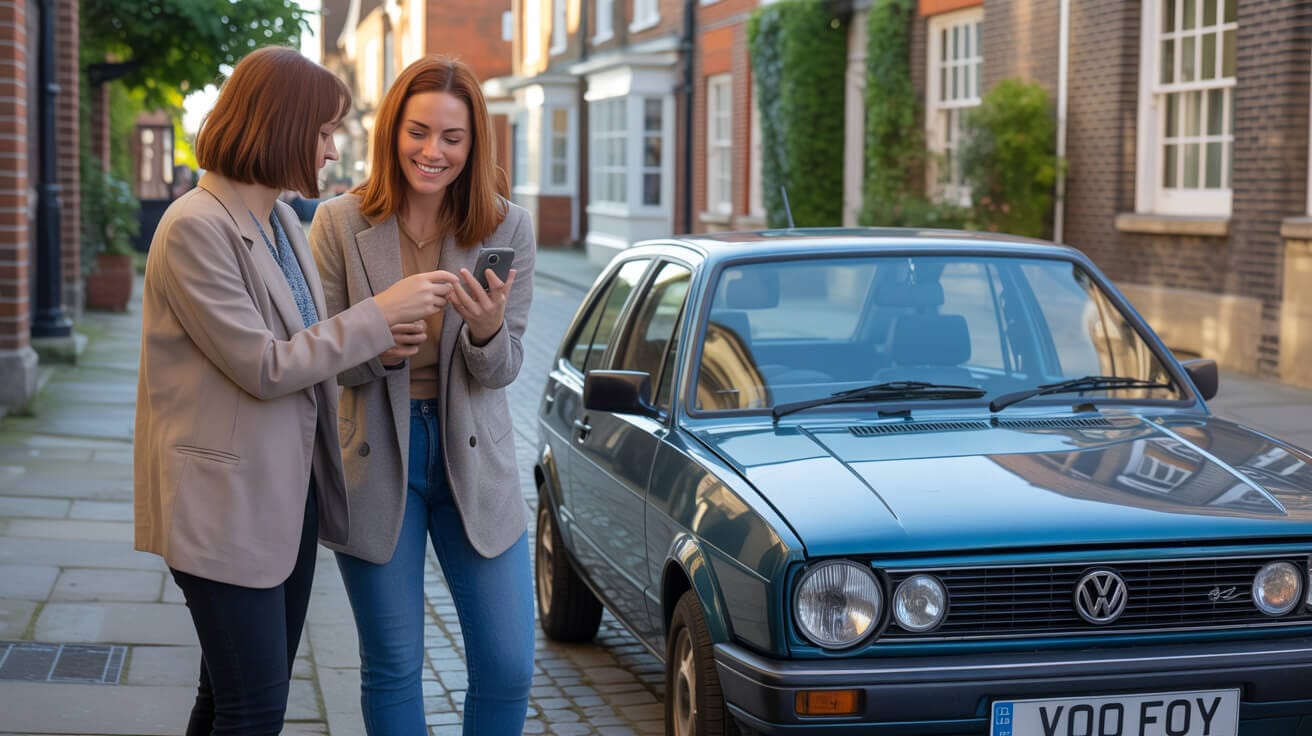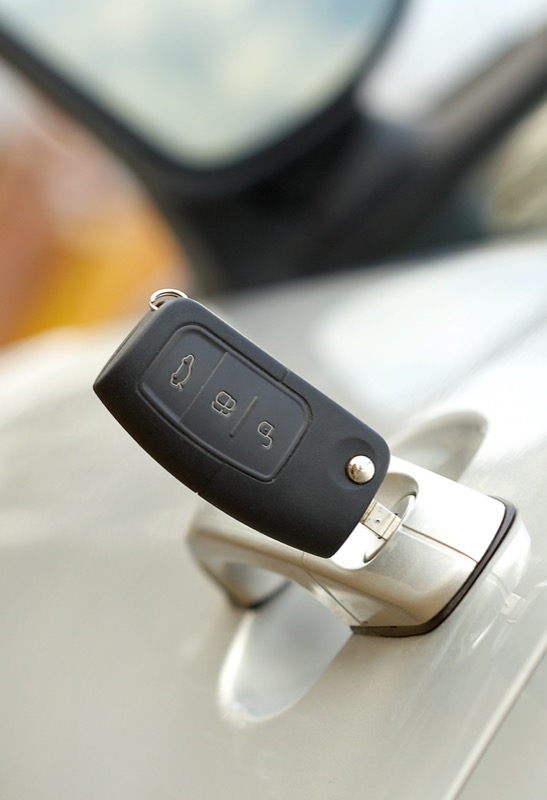How Should You Respond When You’ve Lost Every Car Key?
When you discover that all your car keys are missing, your best move is to shift from panic to process—focus on securing your vehicle, assembling ownership details, and being ready for credible verification. Begin by ensuring your car and its contents remain safe; notify anyone who might have access so alarms or immobiliser lockouts aren’t inadvertently triggered.
Trying to jimmy a lock or hunt for hacks online only ups your risk—modern cars fight back with security systems that don’t forgive guesswork. Instead, concentrate on what you can control: keep your keys whereabouts documented, have your V5C or lease paperwork at hand, and prepare to prove you’re the owner.
Clarity trumps chaos—when you start methodically, the rest of the recovery flows with less delay.
What Should Top Your To-Do List After Losing Car Keys?
Your first priority is straightforward: secure your car and its valuables. If you think your keys were stolen, call the police and your insurer immediately. Even if you just misplaced them, log when and where they vanished—this streamlines any insurance claim or locksmith assessment.
Avoid taking apart door handles, forcing windows, or poking around fuse boxes. Modern security and immobilisers don’t play nice with improvisation—they reply with higher bills and bigger headaches down the road. Call in a reputable auto locksmith who insists on proper authorisation before helping.
Why Does Attempting DIY Entry Create More Problems Than Solutions?
Tempted to use wire hangers, “lockout tools,” or brute force? Don’t. Makeshift attempts can damage locks, electronics, door modules, or even set off immobiliser shutdowns, leaving your car stuck. Many DIY entries end up voiding warranties or causing lasting mechanical faults. Qualified locksmiths use non-destructive entry, preserve your warranty, and ensure the car—and your data—remain secure.
What Verification Steps and Security Checks Do You Need for Legitimate Recovery?
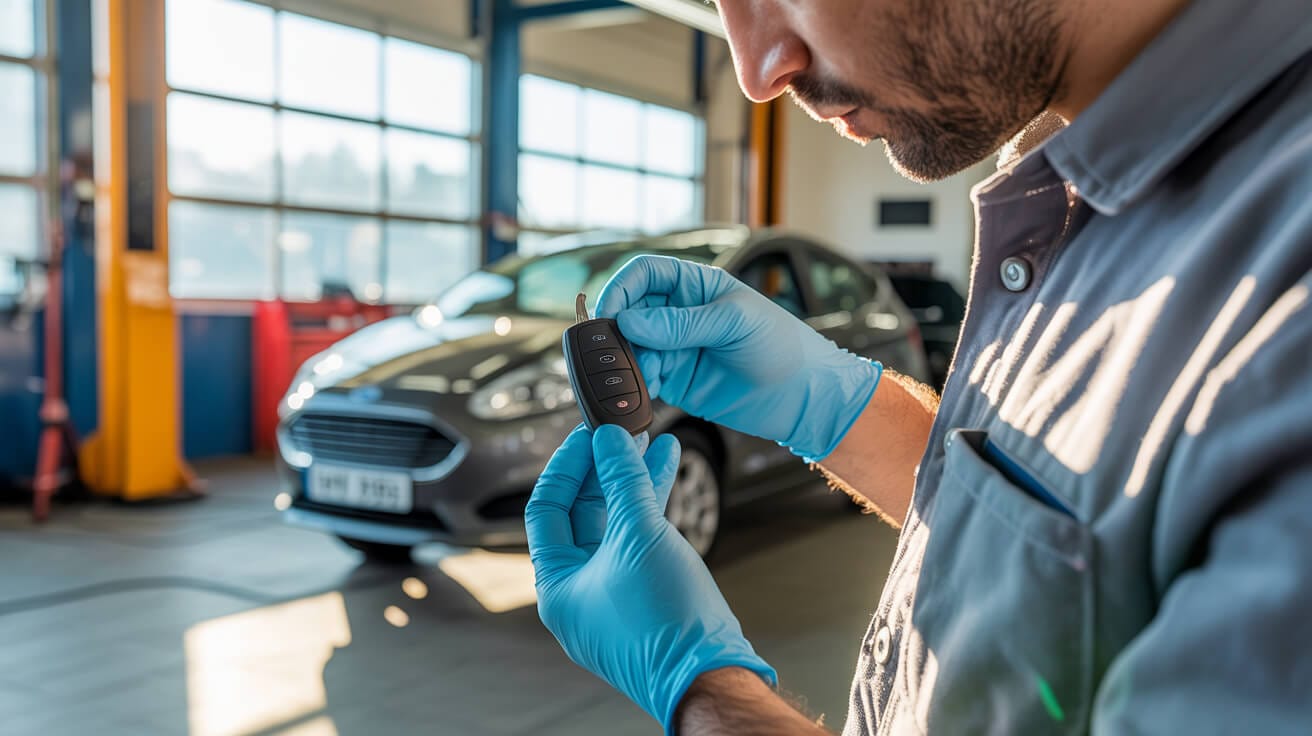
You’re not just buying a new key—you’re buying accountability. Every proper locksmith starts with rigorous ID and ownership checks: expect to show government-issued photo ID, the V5C (logbook), or a valid lease. These guardrails aren’t red tape—they protect you and the provider from theft or fraud.
A respected locksmith keeps a record from the first call to the handover, documenting each step in a tamper-proof log. This evidential chain covers every action: ID check, programming, new key handover, and even customer aftercare advice.
Security is not a feeling; it’s an audit trail—when you know every access is logged, peace of mind follows.
Which Proofs of Ownership Are Essential (and How Is Your Data Kept Safe)?
Bring these with you or have them ready at the roadside:
- Photographic identification (driver’s licence or passport)
- V5C logbook, hire or lease paperwork
- Proof of address, if your ownership documents don’t show your current home
Your data is checked on site but locked down with military-grade security: strictly minimal retention, controlled access, and encryption at every stage.
Why Might a Locksmith Refuse Service, and What Happens Next?
No ID or documentation? The right locksmith will walk away—full stop. This is not just a business rule; it’s a legal and ethical foundation. If you’re struggling to provide documents but are the real owner, a genuine provider will explain escalation paths, such as reaching out to the registered dealer or following a recovery protocol with delayed handover.
What Does a Secure, Non-Destructive Car Entry Process Involve?
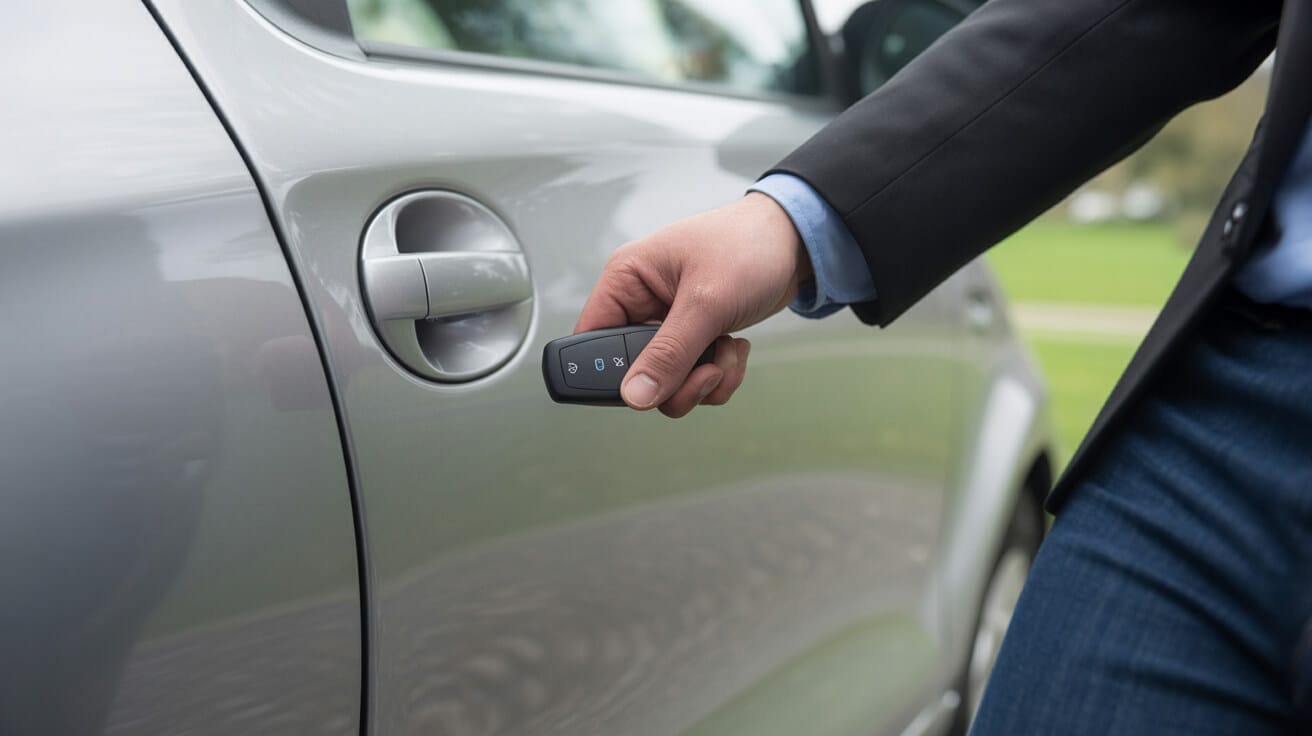
Authorised locksmiths are trained to unlock vehicles without leaving a trace. They use manufacturer-endorsed equipment: shielded picks, decoder tools, plastic wedges, and (for high-tech cars) purpose-built electronics. The aim? Maintain warranty, preserve trim, and give insurers or traders no doubt that entry was legitimate.
Before they touch your car, the technician evaluates the scene—traffic, weather conditions, and safety hazards take precedence. They use protective pads and clips to prevent even a scratch on your door or interior. For digital entry systems, they’ll check electronic logs and ensure entry commands are confirmed, recorded, and secure.
Every non-destructive, well-documented action is your proof against future disputes or warranty quibbles.
How Do Experts Protect Your Electronics and Interior Trim?
Professionals never cut corners. They use tools designed to avoid marring paint or plastics. For smart vehicles, they run diagnostic scans before and after entry, flagging any pre-existing errors and logging successful access. Photos back up every move—providing you a digital trail and your insurer, dealer, or auditor indisputable evidence.
How Is Documented Evidence Used for Insurance and Warranty Claims?
Think of every entry as a mini-casefile: ID checks, step-by-step workflows, and photo logs are all included in your job record. This transparency is invaluable if you ever file a claim, challenge an excess, or face a warranty dispute. The best locksmiths hand a copy of this evidence pack straight to you when the job’s complete.
When Is New Key Programming Needed, and How Is It Done Safely?

Today’s car keys and access fobs are security credentials, not mere pieces of metal. Most vehicles link each key or fob with coded electronic authorisation—so after a total loss, programming is always needed. Locksmiths connect genuine, traceable tools via the official diagnostic port, only after confirming your consent. Each new credential is added, tested, and old or missing codes are deleted from the car’s memory.
At every step, your consent is digitally logged—who, when, how. When the process ends, only your new keys or devices unlock, start, or drive the vehicle.
Real safety in car key programming is about control—knowing no lost or stolen key can ever enable your vehicle again.
What’s the Practical Difference Between a Mechanical Key, Remote Fob, and Digital Key?
- Mechanical Key: Unlocks doors, may start older ignitions, always houses a secure RFID chip.
- Remote Fob: Adds RF “press-to-unlock” convenience, uses specific frequency (often EU433 MHz), with a backup chip inside.
- Digital Key: Uses phone-as-key tech or app, relies on secure BLE, NFC, or UWB pairing—secured much like bank apps.
Each is provisioned differently: a key cutter and RFID synchroniser for the blade and chip; dedicated RF testing for remotes; secure device registration for digital keys (which sometimes require app setup and owner biometrics).
How Is Your Consent and Data Privacy Handled?
All programming actions, from credential addition to deleting lost keys, are encrypted in your job record. Your personal codes and device IDs are never stored or copied except as needed for programming, and are deleted with dispatch. Any data retained for warranty or audit is time-limited and role-restricted.
What Technical Challenges Could Stall Recovery, and How Are They Handled?

Recovery isn’t always plug-and-play. Electrical faults, module “lock-outs,” harness damage, or depleted fob batteries can slow things down. A true specialist comes prepped for every scenario, keeping not just keys and fobs, but diagnostic and spare parts for high-frequency fails.
When something unexpected crops up—be it a malfunctioning actuator, harness break in a door grommet, or a glitchy software module—they explain what’s happening, estimate new time/cost, and escalate only if necessary (for instance, back to the main dealer for rare programming steps).
You’re never left guessing: every challenge is explained in plain English, with honest options and transparent costs.
What Are the Most Frequent On-Site Recovery Obstacles?
- Broken or fatigued wiring in door grommets or at lock connectors
- Damaged or rusty latch assemblies
- Batteries run flat in the car or in the remote keys
- Software conflicts that need advanced coding tools or online access
- Pre-existing scratches, burring, or damage from prior attempts
You’re consulted at every turn. If extra work or parts are needed, you decide how to proceed.
Why Does a “First-Time-Fix” Mindset Matter for You?
No one wants multiple callouts or unfinished business. A locksmith who comes with make/model-matched blanks, batteries, data, and tools aims to solve your problem on the spot. Repeat visits eat your time, increase potential frustration, and can delay your insurance or warranty claims. Fixing it right, first time, is about respecting your schedule and serenity.
How Does Data Privacy, Compliance, and Audit Logging Keep You Safe?
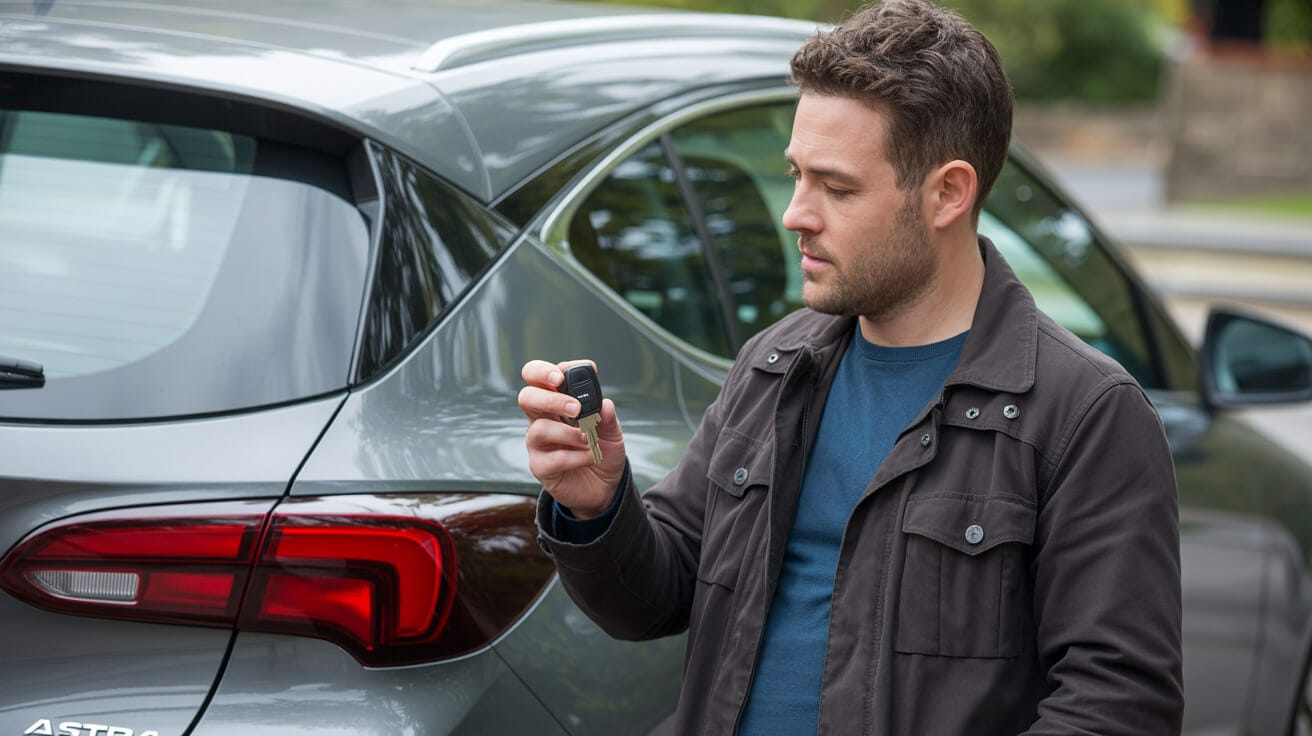
Compliance isn’t an option—it’s at the heart of secure recovery. From the moment you call, only essential data is collected, encrypted, and finally deleted as soon as regulation allows. Each physical or electronic action—ID checked, tool used, credential programmed or deleted—is recorded in a tamper-resistant log that you can review anytime.
Providers who follow the ISO 26262 (functional safety), ISO/SAE 21434 (cybersecurity), and UK radio/data privacy laws give you legal and physical security. Shortcuts here not only compromise your car but can also jeopardise your right to claim, sell, or insure your vehicle.
True security isn’t just about the locking hardware or software—it’s also about what’s on the record, and who can see it.
What’s Actually Recorded During Key Recovery and Programming?
- Date, time, technician identification
- Make/model of tools and software
- Every step (entry, programming, deletion)
- Photo evidence, audit trail, and the physical job record
Sensitive details like security codes or device IDs are never held beyond what’s necessary to complete the job.
How Long Is Data Held, and Who Can See It?
Data retention follows strict legal minimums. Only vetted staff can see records—every access is logged for full accountability. If you want your record erased or need a copy (for resale or a claim), your request is processed in line with UK data protection law—fast, fair, and complete.
What Should You Expect During Aftercare, Warranty, and Out-of-Hours Support?
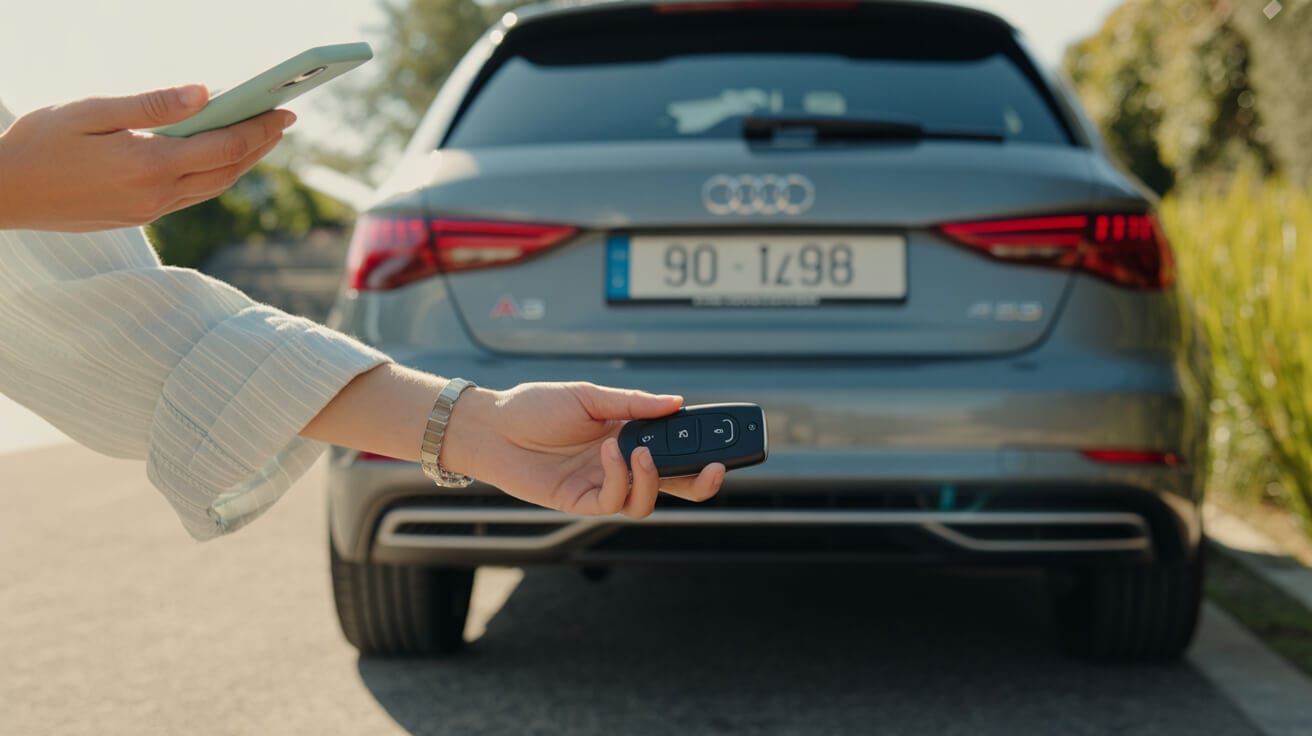
Service isn’t finished at handover. Real aftercare means you get a practical debrief—new key functions, spare protocols, and maintenance “do’s and don’ts.” Warranty paperwork is handed over then and there, covering parts and programming for a defined window.
You’re supplied with clear lines for urgent, out-of-hours help—no AI bots, no endless call waiting. Questions about batteries, signal range, or digital credential quirks? You get prompt, human answers. Your aftercare summary gives practical instructions for day-to-day key use, cleaning, and troubleshooting.
Quality providers back up their promises with action—aftercare is not an extra; it’s part of the service promise.
Step-By-Step: What Aftercare and Out-of-Hours Support Means
Step 1: Demonstrate all key and alarm functions
Step 2: Review warranty coverage, including fine print
Step 3: Share round-the-clock phone numbers for urgent support
Step 4: Issue aftercare summary—battery, cleaning tips, spare locations
Step 5: Confirm and log your preferences on record retention and data handling
Every step is recorded, closing the loop on both service quality and compliance.
How Does Using Warranty and Aftercare Help You Stay Ahead?
It’s your front line against repeat trouble. If a pattern is found with your make/model—like a key battery known to lose voltage in winter—you’ll get timely advice or reminders before trouble strikes. Engaged aftercare means faster, easier, warranty-backed fixes every time.
How Can You Prevent Future Lockout and Strengthen Your Key and Security Setup?

Don’t just respond—plan. Always cut and register a spare key, and keep it somewhere you (not a thief) can access in an emergency. Where possible, activate digital backup credentials—smartphone access, app authorisations—on compliant vehicles.
Ask for periodic reviews: a skilled locksmith will audit your current credential list, battery status, and (for digital systems) registered devices. For families, fleets, or commercial users, regular check-ins and documentation keep you safe from avoidable lockouts and unknown credential creep.
Proactive security isn’t a luxury, but a mindset—spares, audits, and clear paperwork are how you lock in real peace of mind.
What Extra Security Options Could Benefit You?
- Hidden spare (approved by your insurer) for urgent situations
- Digital access trackers or next-gen fobs for high-value or high-risk situations
- Scheduled “health checks” for your key/fob/module, especially before long trips or winter
For businesses, fleet-wide credential management can reduce incidents, streamline insurance, and improve operational efficiency.
Why Bother With Continued Documentation When Keys Aren’t Lost?
Every record—a spare key’s code, app activation date, or battery change—becomes an asset at claim or resale. Digital credential logs prove you’ve always been the legitimate owner—no more headaches if you sell or need to contest a claim.
What Sets Audit-Trailed, Non-Destructive Recovery Apart When Choosing a Provider?
All locksmiths may have the “right” kit—but few have the right mindset. Audit-trail discipline, compliance, and non-destructive-first methods are your strongest guarantees. Each job is a clean case: traceable blanks, electronic spares, programmed with IDs and times for every step, and supported with full customer-facing records.
Refusal logs, handover documentation, and validated aftercare mean you have everything you need for dealer, insurer, or legal confidence. Demand to see a provider’s system: you should get clear job logs, digital records, and robust refusal processes for unauthorised jobs.
If a provider can’t instantly surface a full file for your recovery, look elsewhere—future protection depends on transparency now.
How Does This Approach Benefit You for Insurance, Resale, and Peace of Mind?
- Insurance likes paperwork—faster claims, cleaner authorisation, no payout delays.
- Resale value is guarded by proofs of non-destructive entry and up-to-date credentials.
- You can hand over a comprehensive service dossier, reassuring buyers that the car is 100% clean and secure.
It’s not just about today’s lockout, but the entire security lifecycle of your vehicle.
What Signals Should You Prioritise When Picking an Auto Locksmith?
- Legal, traceable identity and owner checks
- End-to-end audit logs on programming and handover
- Data practices above and beyond statutory requirements
- Live, responsive support—not just before, but after the keys are handed over
Don’t settle for half-answers or vague policies—your rights, security, and money deserve better.
Why Is Autolocks Ltd the Trusted Choice for Full-Service Key Recovery?
Speed matters, but not at the expense of security, transparency, or ongoing support. Autolocks Ltd is defined by three unbreakable values: non-destructive-first recovery, total audit traceability, and disciplined aftercare—every job, every customer, every vehicle.
Your entire journey, from first call to aftercare, is mapped to recognised industry standards for privacy and compliance. Each service—whether for a misplaced Fiesta fob or lost credentials on a new BMW—includes up-front pricing, written evidence, and clear refusal protocols. Autolocks Ltd keeps you in the driver’s seat, with your data, rights, and keys always protected.
Trust isn’t just gained at the start—it’s proven at every stage, right up to the day you sell your car or pass it on.
Choose Autolocks Ltd for secure, documented key recovery, proven aftercare, and expert support—no matter when or where you need it. If you value clean processes, warranty-backed outcomes, and ready help around the clock, we’re here to put you back in control.
Frequently Asked Questions
What should you do first if you lose all your car keys in the UK?
If you lose every key to your car, your immediate steps shape whether the recovery is safe, fast, and accepted by insurers. First, confirm that keys aren’t misplaced—search clothing, bags, and recent stops. If truly gone, secure your vehicle in place: lock any accessible doors, park in a visible area, and consider an extra steering lock if one is available. Inform your insurer as soon as the loss is confirmed; fast notification protects your claim eligibility and helps block unauthorised use. Only contact a UK-authorised, owner-verified auto locksmith—such as Autolocks Ltd—who provides legally compliant access and protects your data and warranty. DIY or unauthorised attempts can trigger costly trim or electronics damage, risking your insurance and future claims.
The decisions you make in the first minutes after a loss set the tone for every outcome that follows.
A reputable technician will require proof of vehicle ownership from the outset (V5C logbook, driving licence, or lease documents) and will log every action for legal protection. This insistence on verification isn’t bureaucracy—it’s your insurance policy against fraud or administrative problems down the line. Your top priority: keep the car secure, document your actions, and insist on a provider who values your security as much as you do.
- Search and re-confirm the loss
- Immobilise or relocate the vehicle if possible
- Contact your insurer and request a claim reference
- Call a certified auto locksmith who demands ID and owner verification
Core documents for recovery
- V5C logbook, driving licence, or relevant lease paperwork are required on first contact
- All actions taken are recorded and time-stamped for audit protection
How do legal standards and compliance protocols protect you during car key recovery in the UK?
Car key recovery in the UK must comply with strict legal and technical frameworks designed to reduce fraud and ensure your rights are protected at every stage. The process starts with a dual identity and ownership check, which forms part of GDPR-based data minimisation—your information is encrypted, retained only as mandated, and deleted after aftercare is complete. Only owner-authorised, proven locksmiths like Autolocks Ltd log every action, from the initial ID verification to refusal records if consent is unclear. Service providers must display current liability and auto locksmith insurance, meeting ISO 26262 for functional safety and SAE 21434 for cybersecurity.
Real security starts before a locksmith arrives—through every paper you sign and every record they keep.
Non-compliance can void insurance, compromise your car’s value, and expose you to disputes. Expect to be offered—upfront—the provider’s insurance and GDPR/privacy policy, and always receive a log of the job with audit trails, photos, and retention periods clearly noted.
Enforced legal safeguards at every step
- Service begins only after explicit owner consent and ID checks
- Access logs, tool usage, and module changes are documented for audit
Essential documentation you should expect
- Insurance and compliance statement copies
- Proof of job refusal if proper verification isn’t possible
How is non-destructive vehicle entry performed while safeguarding your warranty and security?
Non-destructive entry is the hallmark of a high-integrity auto locksmith in the UK. Skilled technicians use specialist tools—such as automotive picks, air wedges, and door shields—to unlock doors without marking trim, damaging lock cylinders, or compromising airbags and seals. Every engagement starts with a scene risk and safety assessment, especially at the roadside or in poor weather. Providers like Autolocks Ltd stock their vans for first-time-fix rates above 95%—meaning most jobs are completed with a single visit and no vehicle movement required.
Every scratch avoided is one less question at your next MOT, resale, or warranty claim.
Throughout the process, all actions are photographed and logged in real time, building a transparent audit that protects your warranty and future value. In unusual cases, where a fault is beyond standard protocol, escalation moves immediately to the OEM or dealer via policy-driven channels—never through force or improvisation.
The pillars of damage-free access
- Specialist tools avoid visible or hidden harm to vehicle components
- Job steps are documented, forming a traceable shield for resale or warranty
Why responsive van stock and escalation matter
- A well-stocked van increases the chance of resolving your issue instantly
- Official escalation avoids regulatory or warranty breaches
What controlled steps guarantee secure, traceable, and insurer-approved key replacement?
Secure, lawful key replacement is anchored in a stepwise, fully auditable protocol. The process opens with dual verification—your photo ID and evidence of keepership (V5C, lease documents), conducted both before dispatch and on-site. Next, all recovery and programming steps are logged to your vehicle’s VIN, noting details of every credential, installer, and event. UK “seed-key” and module coding procedures ensure that every new fob, remote, or smart credential is correctly paired and authorised, with zero tolerance for guesswork or aftermarket hacks. Autolocks Ltd minimises data use, encrypts records, and deletes everything outside retention policies after handover.
In an age of smart threats, traceability is your best defence for insurance, warranty, and peace of mind.
If required papers are missing, the provider logs a refusal and updates insurers or fleet managers, shielding you from administrative gaps. Every new credential and programming event is delivered with a signed, tamperproof aftercare document.
Security DNA: the modern recovery protocol
- Pre-attendance ID checks followed by in-person validation
- Programming logged and linked to both your VIN and the responsible technician
Aftercare as proof of compliance
- Signed, audit-ready aftercare documentation accompanies every replacement
- All records are available to you, your insurer, and legal representatives
How are new keys—from mechanical to digital—programmed, tested, and handed over by true professionals?
Professional UK auto locksmiths restore access and start functions by interfacing securely with manufacturer databases to retrieve precise key codes for your car’s make, model, and VIN—even if all originals are lost. Specialised equipment cuts and codes new keys or pairs digital credentials, ensuring smart modules and transponders are synchronised with the body and engine control systems. For each replacement—mechanical, remote, or app-based—the programming and pairing are tracked, then individually tested: unlock, lock, ignition, and alarm.
The true mark of expert recovery: every credential tested in your hands, every step documented for your peace of mind.
On completion, your installer leads a full demonstration and grants you a digital aftercare pack covering every credential, update, and the privacy status of digital keys (including app permissions and secure storage). For digital or phone-as-key systems, Autolocks Ltd ensures correct syncing, privacy compliance, and future support channels.
Programming and pairing: from blade to cloud
- Every credential is referenced against manufacturer records for absolute accuracy
- All updates and digital pairings are recorded and accessible for your records
The “first-time-fix” standard
- Leading providers resolve 90%+ of recovery jobs on the first visit
- Signed warranties, logbooks, and test summaries support resale and future claims
What audit, aftercare and support services protect your security and investment years into the future?
Auto locksmithing today is not only about regaining vehicle access—it’s about ensuring every step holds up under regulatory, warranty, and resale scrutiny. Autolocks Ltd delivers aftercare packs summarising every credential, action, job number, and necessary care (battery change, next steps). All job records are governed by GDPR and insurance frameworks—your data is accessed only by authorised roles, stored for the minimal legally required period, and subject to certifiable deletion on your request.
Quality doesn’t end at the handover: real security comes from records that speak for you, years on.
You’ll receive digital job logs—photos, timestamps, and programming summaries—to support any future claim, transfer, or dispute. Ongoing support and transparent reviews feed directly into service improvements, keeping standards high for every customer after you. If you ever need help with follow-ups, re-provisioning credentials, or simply have a question about your aftercare pack, your provider’s credentials and support contacts are ready.
How audit-ready aftercare locks in your security
- Records can be audited or deleted by owner/fleet; access is always logged
- Documentation enhances vehicle value, insurance support, and rights in dispute
The ongoing value of professional support
- Future dealers, buyers, and insurers validate your service via credible audit trails
- Transparent, accessible records mean you never need to start the trust process again
With Autolocks Ltd, every step is owner-verified, non-destructive, and future-proof. Your rights, your car, and your legacy are protected from first call to every mile ahead—recovery is never just a fix; it’s the start of a better security standard.


